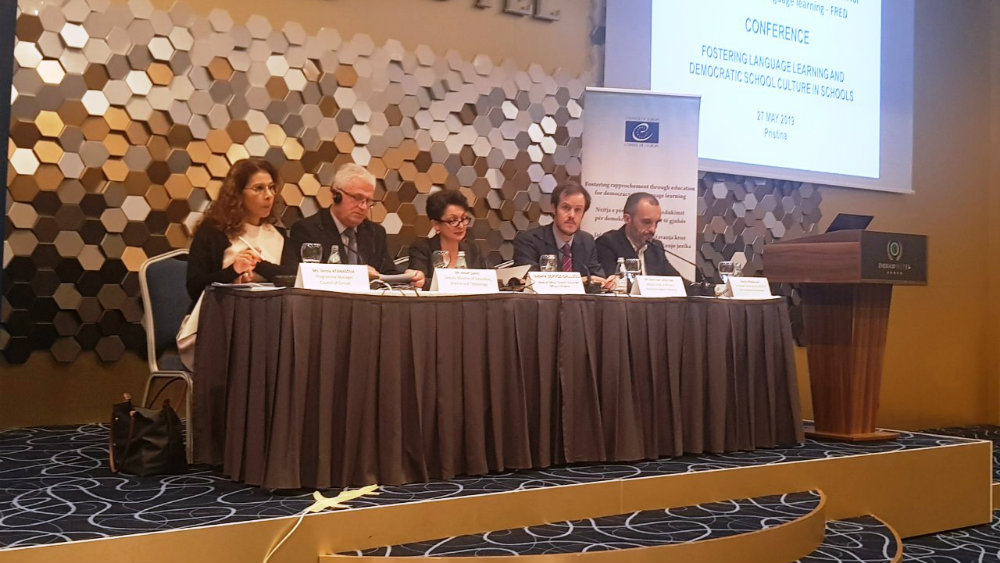An in-depth assessment report, bringing policy recommendations and guidance on how to implement language rights in education and learn official languages in mixed communities, was presented during the Council of Europe conference, entitled “Fostering language learning and a democratic school culture in schools”, held on 27 May in Pristina.
In addition to the report, the conference presented the baseline study on the linguistic and cultural perceptions of young people, their attitudes towards different languages, language learning and speakers of other languages.
Both the in-depth assessment and the baseline study are part of the project “Fostering Rapprochement through Education for Democracy and Language Learning - FRED”, jointly funded by the Kingdom of Norway and the Council of Europe and implemented by the Council of Europe.
The event gathered more than one hundred and twenty participants, including officials from the, Ministry of Education, Science and Technology, the Language Commissioner, the Royal Norwegian Embassy, Municipal Directorates for Education and school representatives. They had an opportunity to get familiar with competences for democratic culture, language learning, national policies, language polices in the region, the use of multi-lingual materials for inclusive school culture and also to see a presentation of school based activities.
The FRED project is being implemented in co-operation with 11 Kosovo* elementary and secondary schools to promote a positive image of local and regional plurilingualism and pluriculturalism as a basis for successful language learning and intercultural dialogue. It aims to foster rapprochement between different communities by creating opportunities for dialogue among individuals and communities and by building mutual confidence through education and language learning.
* All references to Kosovo, whether to the territory, institutions or population, shall be understood in full compliance with United Nations Security Council Resolution 1244 and without prejudice to the status of Kosovo




